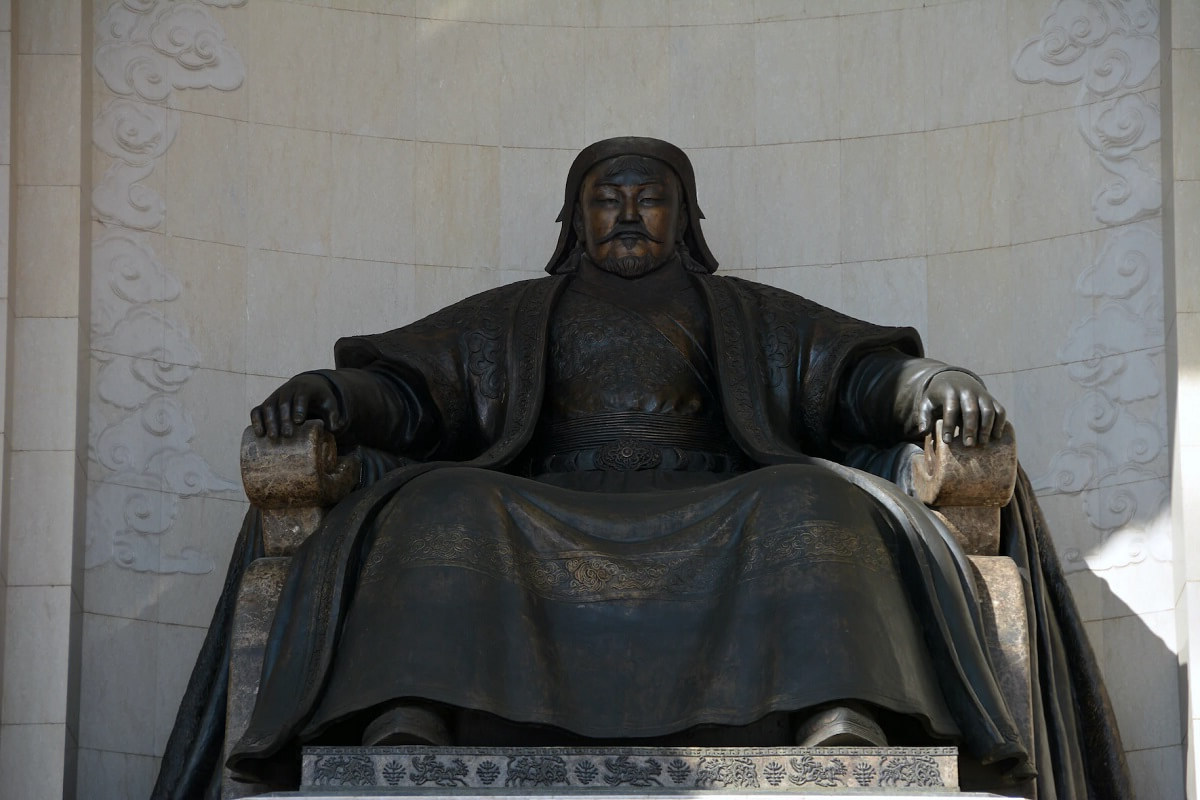
Kublai Khan was a fascinating figure in history. Born in 1215, he was the grandson of the legendary Genghis Khan. Kublai Khan expanded the Mongol Empire to its greatest extent, ruling over vast territories that included China, Korea, and parts of Russia. He founded the Yuan Dynasty in China, becoming its first emperor. His reign marked a period of cultural exchange, economic growth, and significant architectural achievements. Did you know he was also a patron of the arts and sciences? His court attracted scholars, artists, and traders from all over the world. Ready to dive into more intriguing facts about this remarkable ruler? Let's get started!
Early Life and Background
Kublai Khan, a name that resonates through history, was one of the most influential Mongol leaders. His early life set the stage for his future conquests and achievements.
- Kublai Khan was born in 1215, the grandson of the famous Genghis Khan.
- He was the fourth son of Tolui and Sorghaghtani Beki, both of whom played significant roles in his upbringing.
- Kublai spent his early years learning the art of war and governance from his grandfather's seasoned generals.
- He was deeply influenced by his mother, Sorghaghtani Beki, who was a Nestorian Christian and a skilled diplomat.
Rise to Power
Kublai Khan's ascent to power was marked by strategic moves and significant battles. His leadership skills were evident from a young age.
- In 1251, Kublai was appointed the governor of the Mongol territories in Northern China by his brother, the Great Khan Möngke.
- He established his capital at Shangdu, which later became the famous Xanadu.
- Kublai's military campaigns in China were crucial in consolidating Mongol rule over the region.
- In 1260, after the death of Möngke, Kublai was elected as the Great Khan, though his claim was contested by his brother Ariq Böke.
Establishment of the Yuan Dynasty
Kublai Khan's most notable achievement was the establishment of the Yuan Dynasty in China, which marked the first time a non-Han dynasty ruled all of China.
- In 1271, Kublai declared the establishment of the Yuan Dynasty, adopting the Chinese dynastic title.
- He moved the capital to Dadu, present-day Beijing, to strengthen his control over China.
- Kublai implemented policies that promoted agriculture, trade, and cultural exchanges.
- He embraced Chinese culture and governance, integrating Mongol and Chinese administrative practices.
Military Campaigns and Conquests
Kublai Khan's military campaigns extended the Mongol Empire's reach and solidified his power.
- He completed the conquest of the Southern Song Dynasty in 1279, unifying China under Mongol rule.
- Kublai attempted to invade Japan twice, in 1274 and 1281, but both attempts were thwarted by typhoons known as "kamikaze" or divine winds.
- His campaigns in Southeast Asia, including Vietnam and Burma, met with mixed success.
- Kublai's efforts to expand westward into the Middle East and Europe were less successful due to logistical challenges and strong resistance.
Cultural and Economic Contributions
Kublai Khan's reign was marked by significant cultural and economic developments that left a lasting impact on China and beyond.
- He promoted the use of paper money, which facilitated trade and commerce.
- Kublai supported the arts and literature, leading to a flourishing of Chinese culture during his reign.
- He welcomed foreign travelers and merchants, including the famous Venetian explorer Marco Polo.
- Kublai's court was a melting pot of cultures, with influences from Persia, India, and Europe.
Legacy and Impact
Kublai Khan's legacy extends beyond his military conquests and political achievements. His impact on history is profound and multifaceted.
- The Yuan Dynasty, established by Kublai, lasted until 1368, when it was overthrown by the Ming Dynasty.
- Kublai's reign marked the beginning of a new era in Chinese history, characterized by increased interaction with the outside world.
- His policies laid the groundwork for the Silk Road's revival, enhancing trade between East and West.
- Kublai's acceptance of various religions, including Buddhism, Islam, and Christianity, promoted religious tolerance in his empire.
Personal Life and Character
Kublai Khan's personal life and character were as complex as his political career. His leadership style and personal beliefs shaped his rule.
- Kublai was known for his intelligence, curiosity, and open-mindedness.
- He had several wives and numerous children, with his favorite wife being Chabi, who played a significant role in his court.
- Kublai was a patron of the arts and sciences, often engaging in discussions with scholars and artists.
- Despite his military prowess, Kublai preferred diplomacy and governance over warfare.
Challenges and Decline
Kublai Khan's later years were marked by challenges that eventually led to the decline of the Yuan Dynasty.
- His later years saw internal strife and rebellion within the empire.
- Kublai faced financial difficulties due to the costs of his military campaigns and lavish court expenditures.
- The Black Death, which swept through Asia and Europe, also weakened the empire.
- Kublai's death in 1294 marked the beginning of the Yuan Dynasty's decline, as his successors struggled to maintain control.
Final Thoughts
Kublai Khan's life and reign were filled with remarkable achievements and significant challenges. His legacy continues to be felt in China and around the world.
- Kublai Khan remains a symbol of the Mongol Empire's power and influence, as well as a key figure in Chinese history.
Final Glimpse at Kublai Khan
Kublai Khan's legacy is a tapestry of conquests, cultural exchanges, and administrative innovations. His reign marked the height of the Mongol Empire, blending Eastern and Western cultures in ways that still resonate today. From his establishment of the Yuan Dynasty to his efforts in promoting trade along the Silk Road, Kublai's impact was profound. He wasn't just a conqueror; he was a visionary who understood the power of unity and diversity. His story is a reminder of how leadership can shape the course of history. Whether you're fascinated by his military strategies or his contributions to art and science, Kublai Khan remains a figure worth studying. His life offers lessons in resilience, innovation, and the importance of cultural understanding. Dive into his world, and you'll find a leader whose influence extends far beyond his time.
Was this page helpful?
Our commitment to delivering trustworthy and engaging content is at the heart of what we do. Each fact on our site is contributed by real users like you, bringing a wealth of diverse insights and information. To ensure the highest standards of accuracy and reliability, our dedicated editors meticulously review each submission. This process guarantees that the facts we share are not only fascinating but also credible. Trust in our commitment to quality and authenticity as you explore and learn with us.


